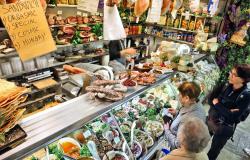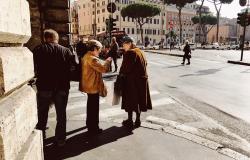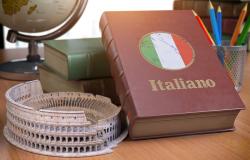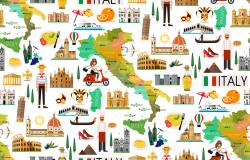
Alesha Allen
:
Alesha is an Oxford University graduate of Italian who lived and worked in Rome as a language teacher and PR consultant. Back in the UK, she now runs Alesha’s Italian Masterclass: group Italian courses and private lessons at Italian cafes and restaurants in London and Surrey. You can contact her at italianmasterclass@hotmail.com or through Facebook. Her website is www.italianmasterclass.co.uk.
Articles by Alesha Allen
It’s common to learn your colors in Italian as a beginner, but have you come across any idiomatic expressions using these colors? Some teachers prefer…
This month many of us are looking forward to the spring, when the weather warms up and we can get out in the fresh air a bit more. Spring is one of th…
Today we are going to look at some common irregular present tense verbs. A verb is a doing or action word and we need to use them to speak Italian wel…
Italian is often described as ‘the language of love’ and with Valentine’s Day soon to be upon us, now is a great time to look at how we talk about lov…
If you’d like to speak generally about something in English you may use ‘one’, ‘you, ‘they’, ‘we’ or ‘people’. For example, ‘you need to study to lear…
At Italy Magazine we have looked at nouns before, both regular and irregular ones. Nouns are naming words and represent things, people and places. The…
The new year can be a great time to take up a new hobby or improve your general fitness. In Italian lessons with my students I like to talk about new…
I am sure you have heard the word ‘bellissimo’ (very beautiful) or ‘buonissimo’ (very good) in Italian. These -issimo endings are called absolute supe…
The verb ‘stare’ is a very common Italian verb. It’s also an irregular verb, so it’s useful to understand how it works and which contexts to use it in…
If you’re in Italy and you’ve had enough of someone, you don’t care about what they have to say any more and you want to tell them in no uncertain ter…
There are some common pronunciation mistakes native English speakers make when they are speaking Italian, so it can be helpful to be aware of them and…
When you’re talking in any language, it’s good to be able to say ‘I don’t want that’, or ‘I didn’t do that’. In Italian, you might already know the wo…
Possessive adjectives indicate ownership of something, for example:
Quella è la mia pizza! - That’s my pizza!
In English, they correspond to my,…
You may have heard the word salute in Italian. It can be translated in the following ways:
- Health / wellbeing
Bere troppo alcol fa male al…
We can use exclamations to express a range of emotions including happiness, sadness, surprise, anger, excitement, enthusiasm and disgust. Learning som…
If you’d like to say ‘Florence is more beautiful than Venice’ or ‘Neapolitan pizza is nicer than Roman pizza’ or ‘The sea is bluer in Sardinia than in…
Ci and ne are called particelle (particles) and are widely used in Italian. You may have heard them or seen them written down but were not s…
Prepositions are short words that show the relation of a noun or pronoun to other words in a sentence. Here is a lesson on prepositions to help you us…
Piacere means ‘to like’ in English but a more literal translation would be ‘to be pleasing’. In English we say ‘I like Italian’ but in Italian we woul…
Quali sono i tuoi passatempi? When meeting a new person in Italy you may be asked this question - what are your hobbies? The word hobby is also used i…



















